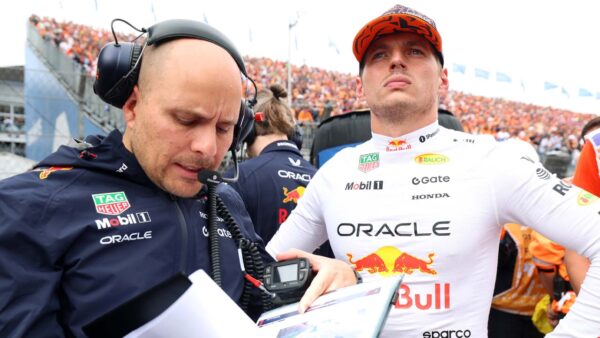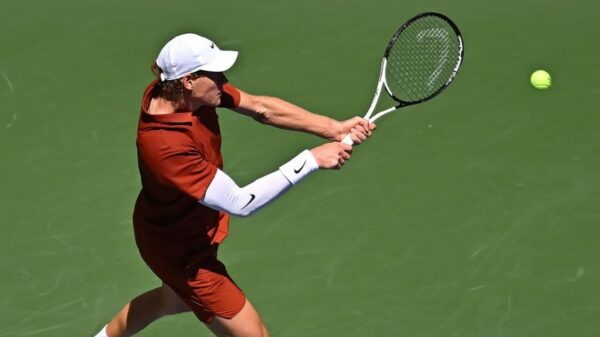Use of saliva on ball banned, Mankad legitimate dismissal: MCC announces changes to cricket rules

🔍 Explore this post with:
The Marylebone Cricket Club (MCC) has announced a new set of rules that will go into effect on October 1, 2022. The committee has made some important decisions that will affect the dynamics of the game in the upcoming years. The new rules stipulate that the batter is on strike even when the players cross when the catch is taken. Additionally, saliva will no longer be used to polish the ball. Umpires would be pleased with the changes, as they will judge wides based on the stance of the batter, meaning that batters won’t earn extra runs by shuffling across the crease. Additionally, the batting team will receive penalty runs if any player is judged to have moved unfairly. Meanwhile, the change to the rule for caught dismissals was inspired by ECB’s competition The Hundred.
Also read | IPL 2022: 3 Players CSK should sign if Deepak Chahar gets ruled out of the tournament
In accordance with the new rule, the new batter will be on strike even if the players cross before the catch is completed. This rule has been instituted to further reward the bowler. The new law provides, “When a batter is caught out, the new batter shall come in at the end the striker was at, i.e. to face the next ball (unless it is the end of an over),” reads the new law.
Non-striker run-outs are destigmatized by the MCC

The MCC has changed Law 41.16 (running out the non-striker) from Law 41 (Unfair play) to Law 38 (Run out) to remove the stigma surrounding the run-out at the non-striker’s end. According to the law, the wording of the Law has not changed. “The bowler is always portrayed as the villain, but it is a legitimate way to dismiss a batter, and the non-striker is stealing the show”, said Fraser Stewart, MCC Laws Manager. “It is valid, it’s a run-out, and therefore it should go in the run-out section of the laws,” he added.
Here’s the list of changes suggested by MCC:
Law 1 – Replacement players
The introduction of a new clause, Law 1.3, explains that replacements are to be treated as if they were the player they replaced, inheriting any sanctions or dismissals that player has done in that match.
Law 18 – Batters returning when Caught
Trialled in The Hundred, Law 18.11 has been changed — when a batter is out Caught, the new batter shall come in at the end the striker was at, i.e. to face the next ball (unless it is the end of an over). Attempt to cross over while a catch is being taken will have no impact.
Law 20.4.2. 12 – Dead ball
Dead ball situations arise when either side is disadvantaged by a person, animal or other object within the field of play. From a pitch invader to a dog running on to the field, outside interference occurs sometimes. If this is the case, and it affects the game materially, the game will be a Dead ball.
Law 21.4 – Bowler throwing towards striker’s end before delivery
It is extremely rare for a bowler to attempt to run out the striker before entering their delivery stride, so there will be a Dead ball situation.
Law 22.1 – Judging a Wide
In the modern game, batters are, more than ever, moving laterally around the crease before the ball is bowled. It was felt unfair that a delivery might be called ‘Wide’ if it passes where the batter had stood as the bowler entered his/her delivery stride. Therefore, Law 22.1 has been amended so that a ‘Wide’ will apply to where the batter is standing, where the striker has stood at any point since the bowler began their run up, and which would also have passed wide of the striker in a normal batting position.
Also Read | “Not going to play Test cricket again” – Aaron Finch
Law 25.8 – Striker’s right to play the ball
If the ball returns to the pitch after landing away from the pitch, it is permissible for the striker to play the ball if some part of their bat or body remains on the pitch. Should they venture beyond that, the umpire calls Dead ball. As recompense to the batter, any ball which would force them to leave the pitch will also be called No ball.
Laws 27.4 and 28.6 – Unfair movement by the fielding side
The fielding team was previously only penalized with a ‘Dead Ball’ when they moved unfairly, potentially cancelling a good shot by the batter. Because the move is both unfair and deliberate, the batting team will now be awarded 5 Penalty runs.
Law 41.3 – No saliva
MCC found that applying saliva to the ball did not affect the amount of swing the bowlers got when play resumed after Covid-19. A new rule prohibits applying saliva to the ball. Using saliva on the ball is now prohibited by the new Laws, which also removes any gray area by fielders eating sugary sweets to alter their saliva to apply to the ball. Using saliva will be treated the same way any other unfair method for altering the condition of the ball will be.







